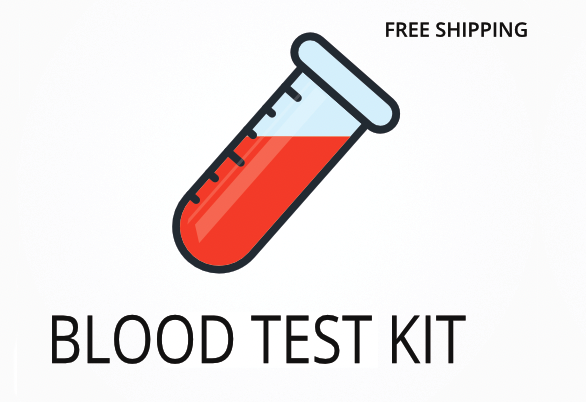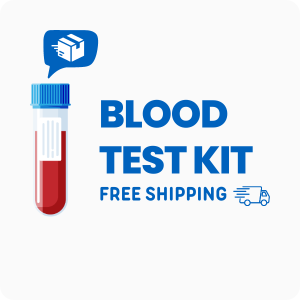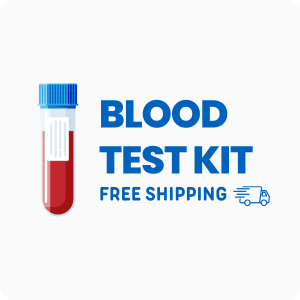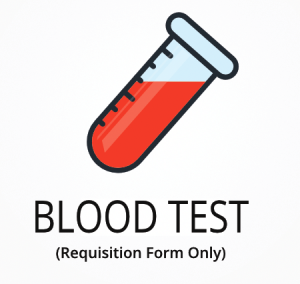Ordering the Lyme Co-Infection Panels | Igenex New York
Ordering the Lyme Co-Infection Panels | Igenex New York helps identify tick-borne infections that often occur alongside Lyme disease, such as Babesia, Bartonella, Ehrlichia, Anaplasma, and Rickettsia. These infections can cause symptoms like joint pain, fatigue, memory issues, and heart palpitations, which may be overlooked or mistaken for other conditions. Interestingly, some co-infections can suppress the immune response, making Lyme disease harder to detect and treat.
When ordering this panel, you gain access to a comprehensive set of tests that can:
- Detect multiple tick-borne infections in one blood draw
- Help clarify the cause of ongoing symptoms when Lyme disease is suspected
- Support targeted treatment decisions by identifying specific co-infections
- Reduce the need for multiple separate tests and appointments
- Provide results using both antibody and direct detection methods for improved clarity
Who Should Consider Tick-Borne Co-Infection Screening
People who have experienced unexplained fatigue, joint pain, or neurological symptoms after spending time in wooded or grassy areas may benefit from this panel. For example, someone who enjoys hiking and later develops persistent headaches, muscle aches, and memory problems might not realize these symptoms could be linked to a tick bite months earlier.
Ordering this panel may also be helpful in these situations:
- Ongoing symptoms after a previous Lyme diagnosis that have not improved with treatment
- Sudden onset of fever, chills, and night sweats following outdoor activities
- Unexplained heart palpitations or dizziness in someone with a history of tick exposure
- Digestive issues, such as nausea or abdominal pain, that started after a known tick bite
- Hearing loss or vision changes that developed weeks after a camping trip in an area known for ticks
Testing for these infections can help pinpoint the cause of symptoms and guide more effective treatment. Delaying this panel may allow co-infections to persist, which can make symptoms harder to manage and prolong the time it takes to feel better.
Preparing for Tick-Borne Infection Testing
Fasting is not required before this test, so you can eat and drink as usual. Make sure to follow whatever guidance your doctor or healthcare practitioner gives you, as they may have specific instructions based on your situation.
Labs Included When Ordering Your Lyme Co-Infection Panels | Igenex New York
| Test Name | Reference Range | What the Biomarker Means | Low and High Levels of the Marker |
|---|---|---|---|
| B. microti IgG/IgM IFA | Negative: <1:256 | This test checks for antibodies to Babesia microti, a parasite that can cause symptoms like fever, chills, and fatigue. It helps identify both recent and past infections. |
High levels mean your body has produced antibodies, suggesting a current or past Babesia infection.
Low levels mean there is no evidence of Babesia exposure or infection. |
| Ehrlichia chaffeensis (HME) IgG/IgM IFA | Negative: <1:64 | This marker detects antibodies to Ehrlichia chaffeensis, which can cause fever, headache, and muscle pain. It helps confirm if you have been exposed to this tick-borne bacteria. |
High levels mean your immune system has responded to Ehrlichia, indicating a current or previous infection.
Low levels mean there is no sign of Ehrlichia chaffeensis exposure. |
| Anaplasma phagocytophilum (HGA) IgG/IgM IFA | Negative: <1:64 | This test looks for antibodies to Anaplasma phagocytophilum, a bacteria that can cause flu-like symptoms and low white blood cell counts. It helps detect both recent and past infections. |
High levels mean you have been exposed to Anaplasma, suggesting a current or past infection.
Low levels mean there is no evidence of Anaplasma infection. |
| Bartonella henselae IgG/IgM IFA | Negative: <1:128 | This marker checks for antibodies to Bartonella henselae, which can cause swollen lymph nodes, fever, and neurological symptoms. It helps identify if you have been exposed to this bacteria. |
High levels mean your body has responded to Bartonella, indicating a current or past infection.
Low levels mean there is no sign of Bartonella henselae exposure. |
| Rickettsia rickettsii IgG IFA | Negative: <1:64 | This test detects antibodies to Rickettsia rickettsii, the bacteria that causes Rocky Mountain spotted fever. It helps confirm if you have been exposed to this infection. |
High levels mean you have been exposed to Rickettsia rickettsii, suggesting a current or past infection.
Low levels mean there is no evidence of Rickettsia rickettsii infection. |
| Rickettsia typhi IgG IFA | Negative: <1:64 | This marker checks for antibodies to Rickettsia typhi, which can cause fever, headache, and rash. It helps determine if you have been exposed to this bacteria. |
High levels mean your immune system has responded to Rickettsia typhi, indicating a current or past infection.
Low levels mean there is no sign of Rickettsia typhi exposure. |
| Babesia FISH | Negative | This test uses a special method to directly detect Babesia parasites in the blood, rather than looking for antibodies. It helps find active Babesia infections even if antibodies are not present. |
High levels mean Babesia parasites are present in your blood, showing an active infection.
Low levels mean no Babesia parasites were found in your blood sample. |
Reference ranges may change slightly as labs update their methods, so always check your report for the most current information.
Lyme Co-Infection Panels | Igenex New York FAQ
Is there Lyme Co-Infection Panels | Igenex New York testing near me?
This is a test kit that can be collected at a local draw site—check the draw location link at the top of the page. For people dealing with ongoing symptoms like fatigue or joint pain, having a nearby collection site makes it easier to get tested quickly and start finding answers.
How do I interpret the test results?
While your treating physician should review your results, you can also use our one-on-one test results review service with our clinical team for clear guidance and next steps.
What is the cost of the test?
The price listed for this panel includes standard shipping to you and return shipping to the lab, but draw fees may apply. Ordering this panel can help you identify hidden infections that may be slowing your recovery, so you can get targeted treatment sooner.
How often should I retest?
Retesting is usually recommended 4-6 weeks after treatment or if symptoms return, as this helps track changes in infection status and guides further care.
How accurate is the test?
This panel uses immunofluorescence assays (IFA) and FISH methods, with specificity and sensitivity rates above 95% for most markers. TrueHealthLabs.com partners with CLIA-certified and CAP-certified laboratories to uphold rigorous testing standards for dependable results.
Medical Review Board
Reviewed by Jeff Donohue M.D. from Body Logic and Brady Hurst DC, CCCN. Written by True Health Lab’s team of editorial health contributors.
Disclaimer: This information is for educational purposes only and not intended as medical advice. Consult your healthcare provider for personalized guidance.
Why Customers Trust True Health Labs - What People are saying
Also rated 4.6 out of 5 based on 3452 ShopperApproved reviews- See all TrueHealthLabs.com reviews.









